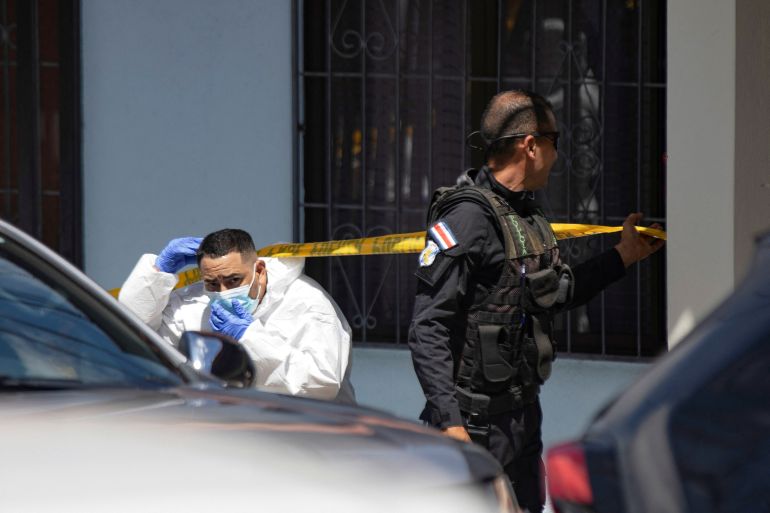Trump ends deportation protections for Nicaraguan, Honduran migrants

July 7 (UPI) — The United States has ended federal protections shielding thousands of migrants from Nicaragua and Honduras from deportation, angering immigration and civil rights advocacy groups as the Trump administration continues to remove longstanding immigration protections from migrants.
The Homeland Security Department announced the end of the Temporary Protected Status designation for those from the two Central American nations in separate statements Monday, saying the move will go into effect in 60 days.
Commonly known as TPS, the designation is intended to prevent the deportation of eligible migrants to their home countries where they could be put at risk due to natural disaster or conflict. Since returning to the White House in January, Trump has already moved to end TPS designations for Afghanistan, Haiti, Venezuela and Nepal — which have attracted litigation.
The United States first designated Nicaragua and Honduras for TPS in 1999, following the devastation caused by Hurricane Mitch a year prior.
According to DHS figures published in a September report from the Congressional Research Service, nearly 3,000 Nicaraguans and more than 54,000 Hondurans have been approved to stay in the United States under TPS.
“Temporary Protected Status was designed to be just that — temporary,” DHS Secretary Kristi Noem said.
In both statements announcing the end of TPS for Nicaragua and Honduras, DHS cited “improved conditions” in the Central American nations, and that after speaking with interagency partners, Noem decided neither country meets the TPS statutory requirements.
Honduran and Nicaraguan nationals are being “encouraged” to report their departure from the United States with the use of the U.S. Customs and Border Protection smartphone application to leave the country with “a complementary plane ticket” as well as “a $1,000 exit bonus to help them resettle.”
The American Civil Liberties Union was quick to file a lawsuit against the Trump administration on Monday, asking the court to declare its termination of TPS for Honduras, Nepal and Nicaragua unlawful under the Administrative Procedure Act as the decision to do so was “not based on an objective review of country conditions.”
It said the termination decision by the Trump administration will affect tens of thousands of migrants, some of whom have been in the United States for 26 years.
“I am devastated at the heartless decision to terminate TPS for Honduras,” Johny Silva, a plaintiff in the case said in a statement from the ACLU.
Silva, 29, has been in the United States since he was three years old, is a father of a U.S. citizen with special needs and works as a certified nurse.
“I’ve been doing it the ‘right way’ the whole time. Now, I am facing losing my job, the ability to care for my family and the only home I’ve ever known,” he said.
Jessica Bansal, an attorney at the National Day Laborer Organizing Network, lambasted the Trump administration’s move as not only “callous,” but illegal.
“The administration cannot manufacture a predetermined outcome without regard for its statutory obligations,” Bansal said.
The lawsuit alleges that the decision by the Trump administration was motivated by racism against immigrants perceived as non-White, pointing to comments made by White House officials, including Vice President JD Vance.
Vance had amplified and repeated misinformation that Haitians in Springfield, Ohio, were eating pets. Later, when confronted with proof that the story was false, Vance said he was willing to “create stories so that the American media actually pays attention.”
Trump returned to the White House in January after using often derogatory rhetoric and misinformation about migrants in support of his plans to conduct mass deportations.
Amid his second term, Trump has tried to make good on his campaign promises, but has attracted criticism for attacking the due process rights of migrants as well as facing litigation. Several judges have issued rulings blocking his termination of TPS for Haitians as well as Venezuelans, with the latter decision being stayed by the Supreme Court in May.
The bipartisan immigration and justice reform FWD.us organization called the move by the Trump administration to terminate TPS for Nicaraguans and Hondurans “a serious mistake” that is part “of a broader campaign to target and preemptively revoke legal status from immigrants, leaving them vulnerable to detention, family separation and deportation.
“It does nothing to strengthen our immigration system, reflects an approach Americans are increasingly rejecting and, as our recent economic analysis shows, will also unnecessarily raise the costs for families in the U.S.,” FWD.us President Todd Schulte said in a statement.
“We need policies that reflect the reality that immigration is good for America and for all Americans.”


